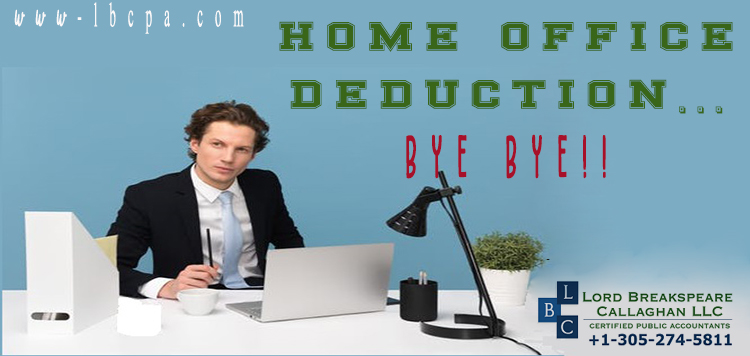LBCPA News 
Click here to go back
FEWER TAXPAYERS TO QUALIFY FOR HOME OFFICE DEDUCTION

Working from home has become commonplace for people in many jobs. But just because you have a home office space doesn’t mean you can deduct expenses associated with it. Beginning with the 2018 tax year, fewer taxpayers will qualify for the home office deduction. Here’s why.
Changes under the TCJA
For employees, home office expenses used to be a miscellaneous itemized deduction. Way back in 2017, this meant one could enjoy a tax benefit only if these expenses plus other miscellaneous itemized expenses (such as unreimbursed work-related travel, certain professional fees and investment expenses) exceeded 2% of adjusted gross income.
Starting in 2018 and continuing through 2025, however, employees can’t deduct any home office expenses. Why? The Tax Cuts and Jobs Act (TCJA) suspends miscellaneous itemized deductions subject to the 2% floor for this period.
Note: If you’re self-employed, you can still deduct eligible home office expenses against your self-employment income during the 2018 through 2025 period.
Other eligibility requirements
If you’re self-employed, generally your home office must be your principal place of business, though there are exceptions.
Whether you’re an employee or self-employed, the space must be used regularly (not just occasionally) and exclusively for business purposes. If, for example, your home office is also a guest bedroom, or your children do their homework there, you can’t deduct the expenses associated with that space.
Deduction options
If eligible, you have two options for claiming the home office deduction. First, you can deduct a portion of your mortgage interest, property taxes, insurance, utilities and certain other expenses, as well as the depreciation allocable to the office space. This requires calculating, allocating and substantiating actual expenses.
A second approach is to use the simplified option. Here, only one simple calculation is necessary: $5 multiplied by the number of square feet of the office space. The simplified deduction is capped at $1,500 per year, based on a maximum of 300 square feet.
More rules and limits
Be aware that we’ve covered only a few of the rules and limits here. If you think you may qualify for the home office deduction on your 2018 return or would like to know if there’s anything additional you need to do to become eligible, contact us.
If you have any questions regarding accounting, domestic taxation, international taxation, IRS representation, U.S. tax implications of Real Estate transactions or financial statements, please give us a call at 305-274-5811.
Source: Thomson Reuters






